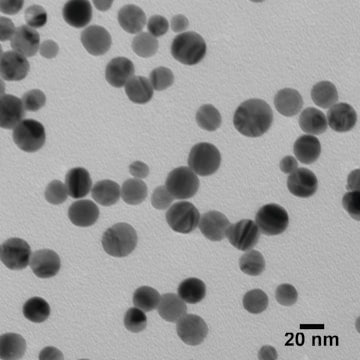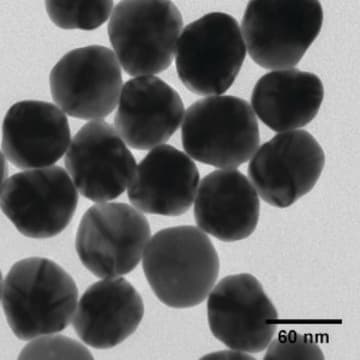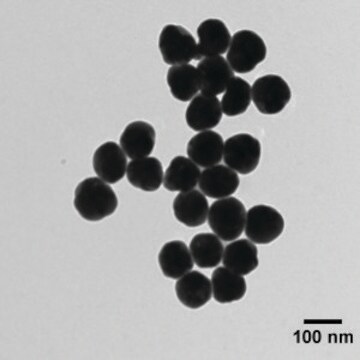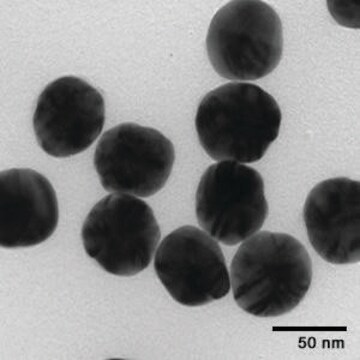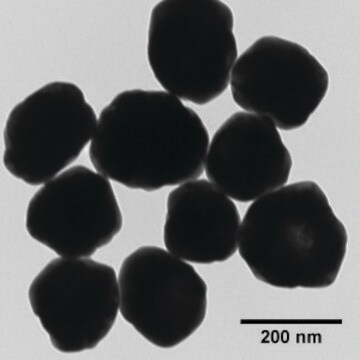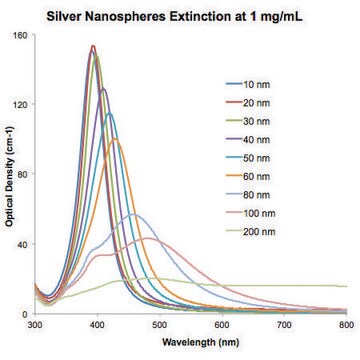730785
Silver, dispersion
nanoparticles, 10 nm particle size (TEM), 0.02 mg/mL in aqueous buffer, contains sodium citrate as stabilizer
Synonym(s):
Colloidal silver
About This Item
Recommended Products
form
nanoparticles
Quality Level
contains
sodium citrate as stabilizer
concentration
0.02 mg/mL in aqueous buffer
refractive index
n20/D 1.333
particle size
10 nm (TEM)
density
0.997 g/mL at 25 °C
fluorescence
λem 388 nm FWHM 59 nm
storage temp.
2-8°C
SMILES string
[Ag]
InChI
1S/Ag
InChI key
BQCADISMDOOEFD-UHFFFAOYSA-N
Looking for similar products? Visit Product Comparison Guide
General description
Application
signalword
Warning
hcodes
pcodes
Hazard Classifications
Aquatic Acute 1 - Aquatic Chronic 1
Storage Class
12 - Non Combustible Liquids
wgk_germany
WGK 3
flash_point_f
Not applicable
flash_point_c
Not applicable
Choose from one of the most recent versions:
Already Own This Product?
Find documentation for the products that you have recently purchased in the Document Library.
Articles
Silver nanomaterials have unique physical, chemical, and optical properties that are currently being leveraged for a wide variety of biological applications.
The diversity of applications and nanostructured materials accessible using ultrasonic spray methods are highlighted in this article.
Ultrasonic spray pyrolysis produces scalable nanomaterials like metal oxides and quantum dots for diverse applications.
Research on noble bimetallic nanoparticles for glucose biosensor detection.
Our team of scientists has experience in all areas of research including Life Science, Material Science, Chemical Synthesis, Chromatography, Analytical and many others.
Contact Technical Service